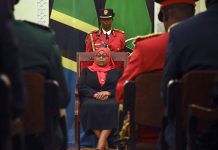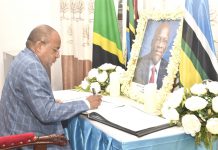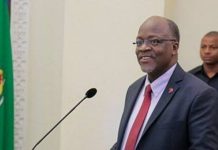THOUGH the shortage of a skilled health workforce is a global crisis, Tanzania has done a lot to join the international efforts to combat the crisis and has registered benefits worth praising especially in the Fifth Phase government under President John Pombe Magufuli (JPM).
This is traced way back when the country adopted the health sector reforms in the 1990s to ensure, among other things, availability of enough skilled health workforce, which has seen many of them going abroad to India, Cuba, and China amongst others to further train and come back to help the nationals.
In 2012, there were approximately 0.31 physicians per 10,000 individuals nationwide, with a lower ratio in the rural areas, where the majority of the population resides, and in response, universities across Tanzania have greatly increased the enrolment of medical students also in the attempt to improve in the health sector.
Still historically, in May 2015, the World Bank Group’s Board of Executive Directors approved a US$200 million International Development Association (IDA) credit to improve the quality of primary health care services in Tanzania, with a focus on maternal, neonatal, and child health services.
The list may also include the Strengthening Primary Health Care for Results Programme that was supported by US$40 million from the Global Financing Facility in support of every Woman Every Child (GFF), and $46 million from USAID, and $20 million from the Power of Nutrition (PoN) Trust Fund, which singled the country as the first to have received the money from the newly established PoN.
All these pinpoint that the government wants to see its citizens health becoming a priority, and go about their duties when they are healthy.
Equally, health institutions locally in the country ranging from the Ocean Road Cancer Institute (ORCI), Muhimbili Referral National Hospital, Bugando to the Kilimanjaro Christian Medical Centre (KCMC), teaching and research to offer better and quality service have improved, but budget to make them offer more is still required.
For example, ORCI, and Muhimbili institutes are capable of intensifying efforts in the fights against cancer screening with the help of our nationals and perform extraordinary surgeries, it means we are in the right track and what matters is additionally empowering them.
By introducing cancer screening package at the Ocean Road Cancer Institute, where patients will undergo screening of various types of cancers such as cervical, breast, prostate, Kaposi sarcoma, thyroid, skin to people with albinism, leukemia, bladder, colorectal, lymphoma and ovary, Tanzanians will have all the reasons to keep on paying taxes and rely on their own.
It is possible and the ball is in our own court.







